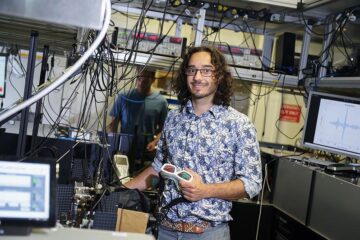Commission calls for experts to evaluate scientific projects

The Commission today published two calls for experts to assist it in evaluating and selecting proposals for research projects to be funded within the 6th EU Research Framework Programme (FP6 2003-20006). Under FP6, proposals will continue to be evaluated and selected for funding with the help of independent external scientists. This “peer review” system will be further streamlined to ensure the procedure is even more transparent and efficient. Within the 5th framework programme (FP5 1998-2002) the Commission’s database containing over 35,000 experts was used to select some 10, 000 experts to assess 60,000 proposals.
“Our programmes are based on excellence,” said European Research Commissioner Philippe Busquin. “The idea of the European Research Area, a true internal market for knowledge and science, is to make Europe share best practice in the scientific field. To identify best projects and reward outstanding performance, we have to rely on high-quality experts to advise us. I invite research institutions to put us in touch with the best scientists and I invite researchers themselves to present their application and help us discover and support innovative research projects, to enhance Europe’s competitiveness and quality of life.”
The first call for applications focuses on individual experts, while the second one concerns research institutions and other organisations with an interest in research, which are invited to present lists of candidates. This is the first time such organisations have been asked to suggest names of experts. Applications can be filed on-line and thereafter candidates will be contacted individually. Experts appointed by the Commission will assist it in evaluating proposals and may be called on to monitor projects as well.
FP6 aims to target its limited resources on a smaller number of well-focussed projects, to achieve added value and critical mass at EU level. This will require a high level of expertise. Evaluators will also have to change on a regular basis. At least 25% of the evaluators working on a specific priority will change annually. Independent experts may also come from outside EU Member States or FP6 Associated States. To promote equal opportunities, the Commission will try to achieve a 40% quota of women for evaluation panels.
Media Contact
Weitere Informationen:
http://www.cordis.lu/experts/fp6_candidature.htmAlle Nachrichten aus der Kategorie: Förderungen Preise
Neueste Beiträge

Neue universelle lichtbasierte Technik zur Kontrolle der Talpolarisation
Ein internationales Forscherteam berichtet in Nature über eine neue Methode, mit der zum ersten Mal die Talpolarisation in zentrosymmetrischen Bulk-Materialien auf eine nicht materialspezifische Weise erreicht wird. Diese „universelle Technik“…

Tumorzellen hebeln das Immunsystem früh aus
Neu entdeckter Mechanismus könnte Krebs-Immuntherapien deutlich verbessern. Tumore verhindern aktiv, dass sich Immunantworten durch sogenannte zytotoxische T-Zellen bilden, die den Krebs bekämpfen könnten. Wie das genau geschieht, beschreiben jetzt erstmals…

Immunzellen in den Startlöchern: „Allzeit bereit“ ist harte Arbeit
Wenn Krankheitserreger in den Körper eindringen, muss das Immunsystem sofort reagieren und eine Infektion verhindern oder eindämmen. Doch wie halten sich unsere Abwehrzellen bereit, wenn kein Angreifer in Sicht ist?…





















